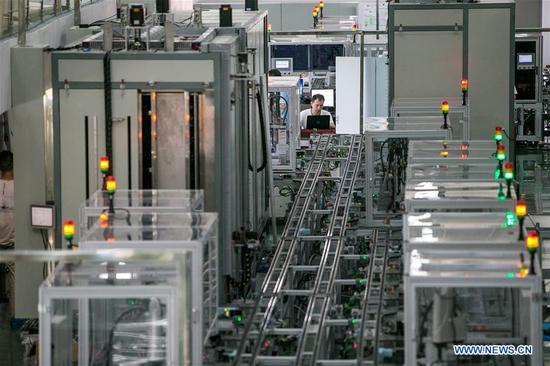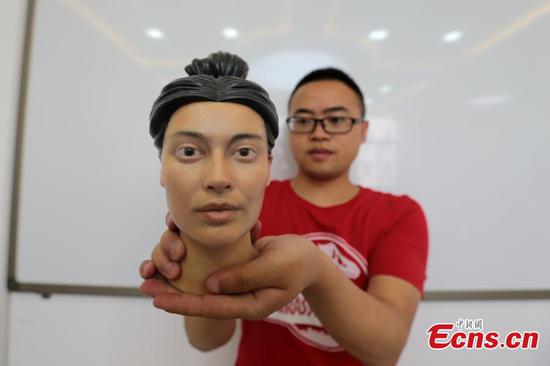
The increasingly wide application of facial recognition technology is spurring research and development in the Guangdong-Hong Kong-Macao Greater Bay Area. (Provided to China Daily)
Drive to learn
While working in the autonomous systems lab at the Institute of Automation, Lai Kin-ming, a 22-year-old junior from the Chinese University of Hong Kong, was puzzled by a small black box fixed to the front fender of a model car.
Initially he thought it was a motor or battery, so he asked his mainland research tutor Zhang Ying, a graduate student, for help. Zhang explained that the box was an encoder, a digital input device used to assimilate data for a specific purpose.
Lai wanted to know how the encoder worked right down to the structural engineering level, so he and Zhang dived into prestigious scientific journals to find the answers.
"It was a great bonding and mutual learning experience," Zhang said. "Hong Kong students don't need to know how encoders work to finish their intern projects, yet they want to get to the bottom of everything. This insatiable drive to learn is something we mainland students can definitely adopt."
The Hong Kong students' ability to innovate also left an impression on their research mentor Tang Shuming, an associate professor at the institute.
"Hong Kong universities have conducted a lot of solid, pioneering theoretical research into AI for years," Tang said. "In the mainland, we tend to focus more on turning research into applications that can solve national needs."
Hong Kong is home to many of the world's leading research centers in AI and deep learning, such as the Multimedia Laboratory at the Chinese University of Hong Kong and the Hong Kong Polytechnic University, she said.
From 2011 to 2015, the city ranked as one of the countries and regions with the most influential AI research publications, taking third place in terms of field-weighted citation impact, a key indicator of a paper's quality, according to science publisher Elsevier.
The mainland ranked 34th on the same list, despite publishing the largest number of AI papers in the world during the same period, Elsevier said. However, according to the AI Institute at Sinovation Ventures, a global venture capitalist, the quality of the mainland's AI research output has improved since 2006.
Tang said, "We still have a long way to go in terms of tapping into the real source of innovation, which is an extremely deep understanding of basic theories."
She added that if Hong Kong's theoretical knowledge could be combined with the mainland's engineering prowess, "We could see rapid technological advances."


















































